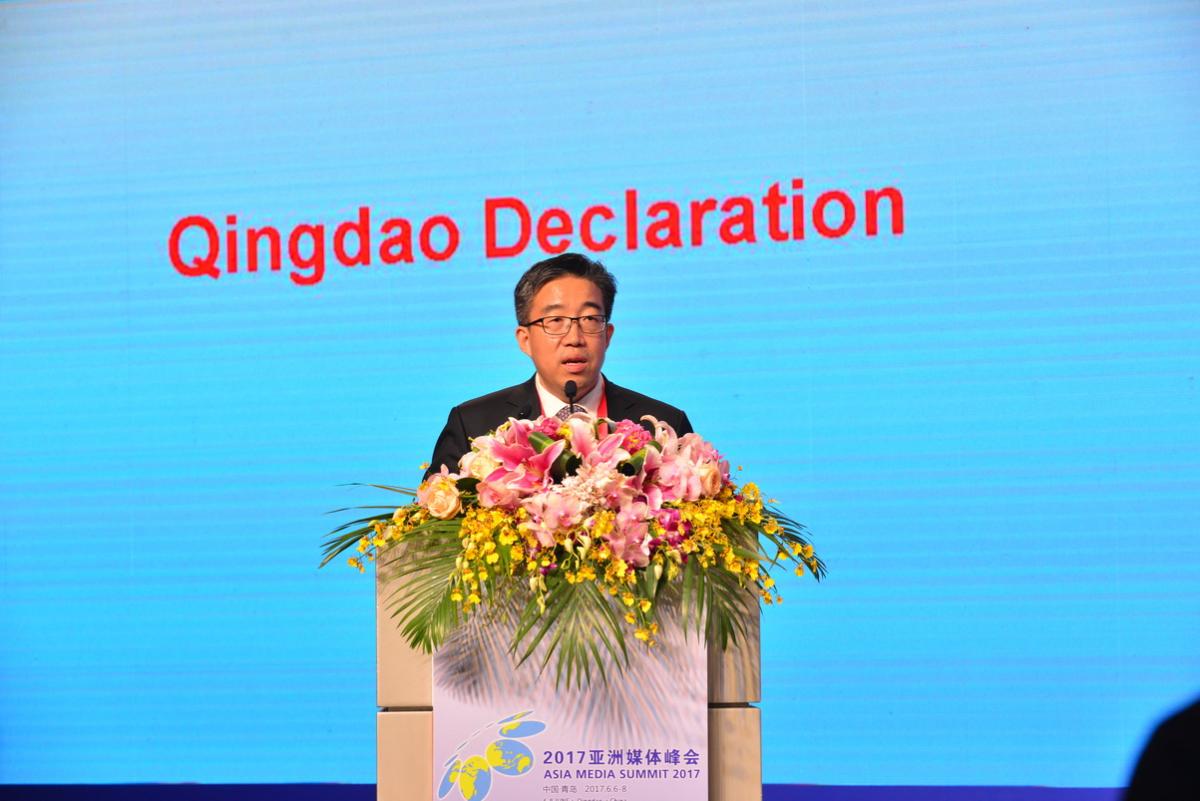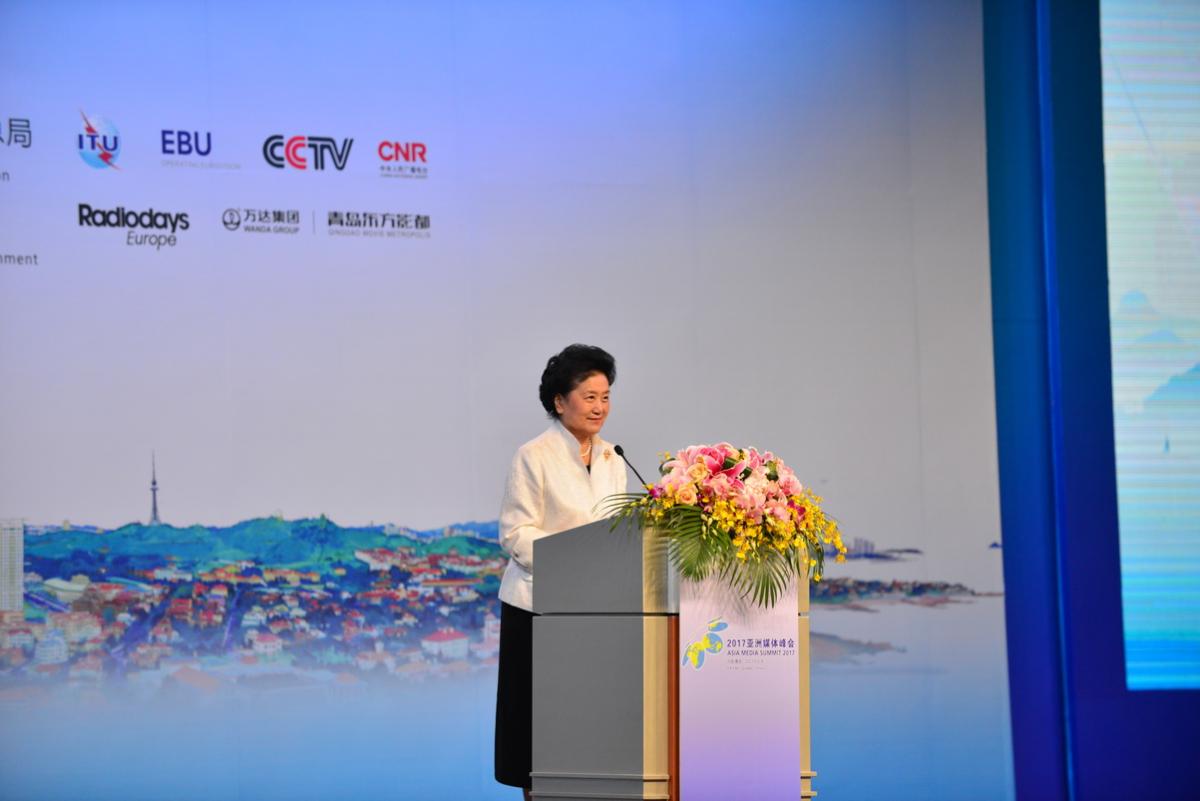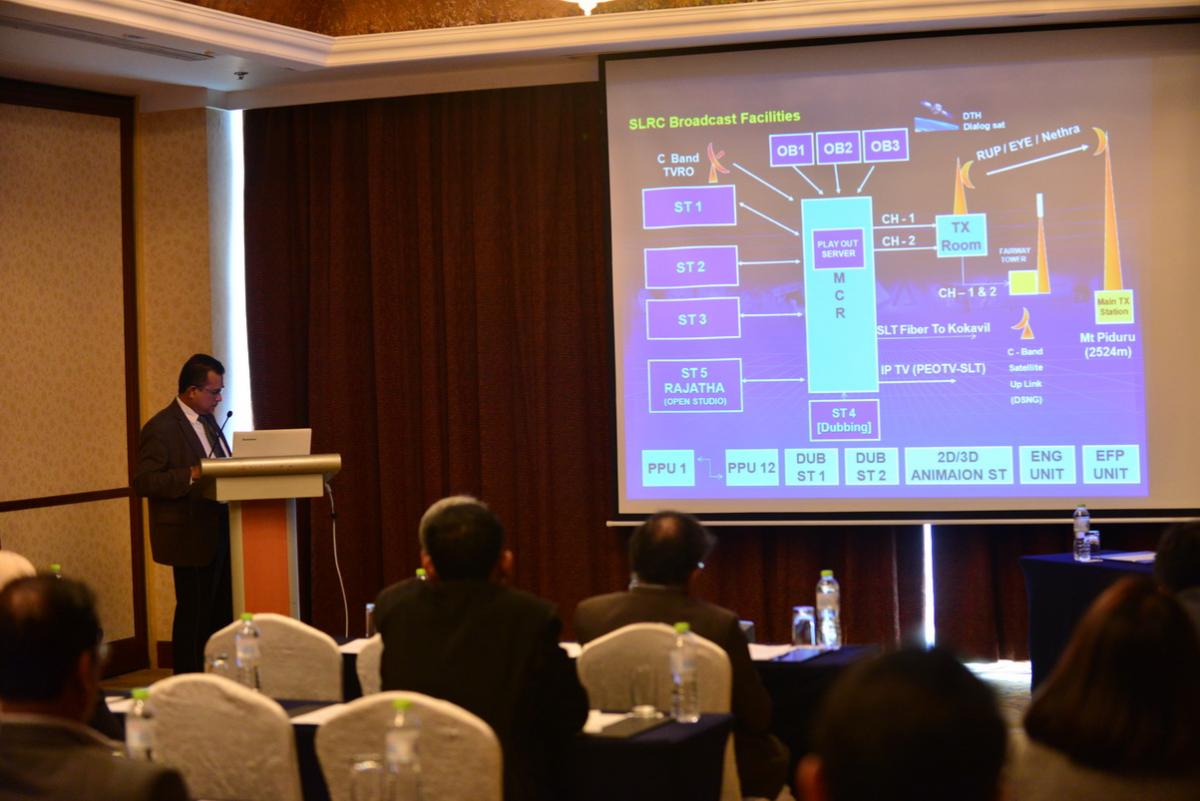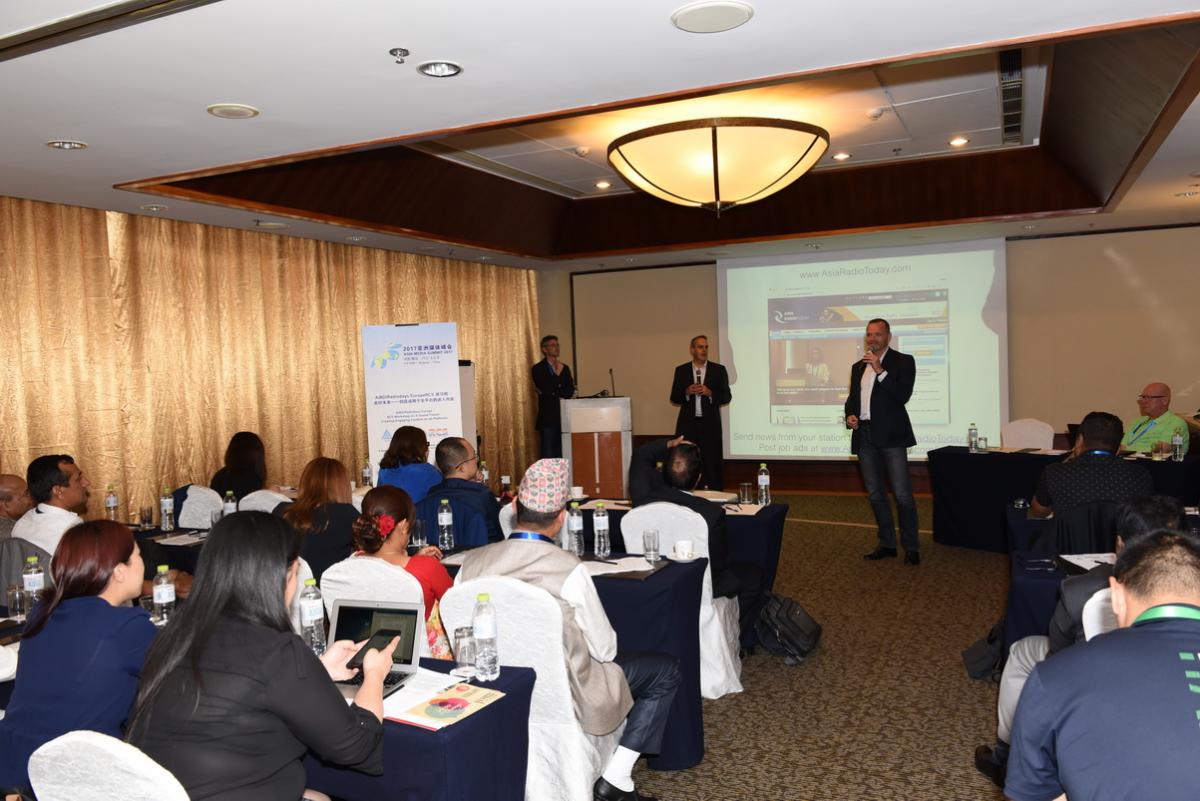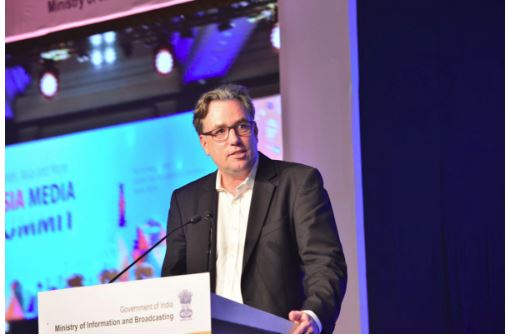Preamble:
Mindful of the pressing challenges facing our world, among them, poverty, conflict, socioeconomic inequality, environmental degradation and climate change that call for urgent and concerted action to accelerate development and progress in our society;
Noting that there are several creative and innovative mechanisms to achieve sustainable development, appropriate to every country’s own needs, expectations and pace of development, and demanding participation and support from government, private sector, civil society, local communities, families and individuals alike;
Preamble:
Mindful of the pressing challenges facing our world, among them, poverty, conflict, socioeconomic inequality, environmental degradation and climate change that call for urgent and concerted action to accelerate development and progress in our society;
Noting that there are several creative and innovative mechanisms to achieve sustainable development, appropriate to every country’s own needs, expectations and pace of development, and demanding participation and support from government, private sector, civil society, local communities, families and individuals alike;
Supporting the 2030 Agenda for Sustainable Development, adopted unanimously by 193 United Nations Member States in September 2015, and its framework of 17 Sustainable Development Goals (SDGs) and their ambition to end poverty, protect the planet and ensure prosperity for all over the next 15 years;
Aware that sustainable development demands effective and efficient management of our limited resources, that necessitates a system of accountability beneficial to governance;
Emphasising that practitioners in traditional and emerging media are among key stakeholders, as they can raise public awareness, change attitudes and behaviours favourable to serving the ends of development without risking professional and ethical standards; III. UN Agencies and international non-profit organisations
Mindful of the need to expand partnerships in meeting the demands of sustainable development, and the needs of media to pursue growth, we seek cooperation and support of UN agencies and international organisations to work on the following measures:
a. to support the fostering of public participation and safeguarding the right to information, right to speech and right to supervision, and support media to play their complete role in reporting sustainable development initiatives.
b. to assist in identifying and obtaining diverse resources helpful in media’s tasks to report sustainable development issues.
c. to promote and monitor safety of journalists.
d. through various mechanisms, to support media programmes, including AIBD’s initiatives, that enhance skills and competences of journalists, editors, production and technical collaborators, needed to provide balanced reporting
Believing that media can play a positive role in fostering public participation and safeguarding the right to information, right to speech and right to supervision in the pursuit of sustainable development;
Recalling past efforts of the Asia Pacific Institute for Broadcast Development (AIBD) to support discussion and debate on development issues in previous Asia Media Summits and national and regional workshops, and to partner in UN-led communication programs, in particular for the Millennium Development Goals (MDGs);
We, media stakeholders in the broadcast industry who participated in the 14th Asia Media Summit 2017 held in Qingdao, People’s Republic of China on June 6-8, 2017, hosted by the State Administration of Press, Publication, Radio, Film and Television (SAPPRFT) of the People’s Republic of China and the Qingdao Municipal People’s Government, focused on the theme “Media on the Frontline of Global Development,” do hereby reach the following understanding:
I. Media
Cognisant of media’s role to ensure messages of sustainable development are heard and heeded in the Asia Pacific region and in our world, we endeavour to promote the following:
a. to optimise media resources, including the use of new media and social media, in acknowledging the importance of promoting a more sustainable future.
b. to work towards supporting the SDGs and publishing the outcomes of SDGs-based activities and programmes carried out by the relevant authorities, businesses and civil society. This could involve allocating more resources for coverage of sustainable development stories, whether the stories are of international, national or local nature.
c. to support efforts to train broadcast editors and journalists, in order for them to better understand diverse nuances of sustainable development issues and improve reporting in various media platforms.
d. to support the public’s right to participation, right to information, the right to speech and the right to supervision, through accurate, balanced and fair media reporting which includes background and context, so as to contribute to public understanding and analysis of sustainable development concerns and achievements.
e. to focus on community issues, in particular affected vulnerable, marginalised and discriminated peoples, in highlighting the various dimensions and challenges of sustainable development in societies, in the spirit of leaving no one behind.
f. to promote media literacy by developing greater critical awareness and understanding of media content, in particular SDGs concerns, among listeners, viewers and readers, building their confidence and skills to become media literate, and encouraging consumers to move from passive to active media consumption.
g. To strengthen community-led media activities through promotion and support to community radio movement and to skills development and capacity building of radio and video volunteers at grassroot levels, to ensure capture and dissemination of authentic development stories.
h. to help ensure safety of journalists as recognised in the UN Plan of Action on the Safety of Journalists and the Issue of Impunity.
i. to increase diversity and parity in media organisations, through adoption of human resources policies favourable to the entry and promotion of competent people regardless of gender, age and status in life.
j. to promote gender-aware media policies and strategies, to foster gender-balanced voice and participation of men and women, young and old, that will enhance public debate, and combat historical prejudices, discrimination and biases to ensure equal enjoyment of rights and enhance human respect.
k. in view of the fact that sustainable development is a matter of rights, to play a proactive role in supporting societies, communities and individuals to create and articulate development demands, facilitating and supporting achievement of development goals.
l. to encourage media organisations, including our own entities, to undertake SDGs projects as part of their corporate social responsibilities, working with government, private sector and civil society to generate better outcomes.
m. to reflect a diversity of views and perspectives in various programme genres that will offer listeners and viewers a broad range of information and ideas.
n. to encourage investigative journalism that can provide in-depth, comprehensive and analytical presentation of SDG issues and concerns.
o. to carry out the above activities according to domestic laws and national legislations, and to international commitments and universal values.
II. GovernmentsIII. UN Agencies and international non-profit organisations
Mindful of the need to expand partnerships in meeting the demands of sustainable development, and the needs of media to pursue growth, we seek cooperation and support of UN agencies and international organisations to work on the following measures:
a. to support the fostering of public participation and safeguarding the right to information, right to speech and right to supervision, and support media to play their complete role in reporting sustainable development initiatives.
b. to assist in identifying and obtaining diverse resources helpful in media’s tasks to report sustainable development issues.
c. to promote and monitor safety of journalists.
d. through various mechanisms, to support media programmes, including AIBD’s initiatives, that enhance skills and competences of journalists, editors, production and technical collaborators, needed to provide balanced reporting
We encourage governments in the Asia Pacific and other parts of the world to support media in their efforts to promote the SDGs. We urge them to promote the following:
a. to work towards universal access to the Internet and other ICTs that can facilitate free flow of information and public participation.
b. to promote an enabling environment for media to flourish, and to support media’s positive role in fostering public participation and safeguarding the public’s right to information, right to speech and right to supervision, particularly in covering agendas related to sustainable development.
c. to enhance public awareness and understanding of the SDGs.
d. to ensure safety of journalists, especially those who are at risk of being harassed or attacked in pursuit of their work, and rapid and effective investigation and punishment of harassment and attacks against journalists.
e. to support training activities of practitioners in government-owned and run media organisations that will enhance skills and competences useful in balanced reporting on SDGs.
III. UN Agencies and international non-profit organisations
Mindful of the need to expand partnerships in meeting the demands of sustainable development, and the needs of media to pursue growth, we seek cooperation and support of UN agencies and international organisations to work on the following measures:
a. to support the fostering of public participation and safeguarding the right to information, right to speech and right to supervision, and support media to play their complete role in reporting sustainable development initiatives.
b. to assist in identifying and obtaining diverse resources helpful in media’s tasks to report sustainable development issues.
c. to promote and monitor safety of journalists.
d. through various mechanisms, to support media programmes, including AIBD’s initiatives, that enhance skills and competences of journalists, editors, production and technical collaborators, needed to provide balanced reporting on SDGs.
Qingdao Declaration on Media and the World’s Sustainable Development Qingdao, China, June 7, 2017
Preamble:
Mindful of the pressing challenges facing our world, among them, poverty, conflict, socioeconomic inequality, environmental degradation and climate change that call for urgent and concerted action to accelerate development and progress in our society;
Noting that there are several creative and innovative mechanisms to achieve sustainable development, appropriate to every country’s own needs, expectations and pace of development, and demanding participation and support from government, private sector, civil society, local communities, families and individuals alike;
Enhance Media Exchanges and Cooperation to boost Global Common Development Speech at the Opening Session of Asia Media Summit 2017 Qingdao, June 6, 2017
President Ali-Askari,
Director Chang Jin,
Distinguished Guests,
Ladies and Gentlemen,
Dear Friends,
Good morning!
In this lovely season of midsummer, flowers blooming like a piece of brocade. I’m delighted to come to the coastal city of Qingdao, with representatives from 48 countries and 7 international organizations, for the opening session of Asia Media Summit 2017. Let me begin by extending warm congratulations on the opening of the Summit. I’d like to convey sincere greetings and best wishes to all the distinguished guests coming from afar, as well as participants from the Film Capital Summit!
Dealing with the Challenges of Digital Migration
The ITU Regional Office for Asia and the Pacific says costs, enormity of task, lack of government support and cooperation among stakeholders, and ever evolving technologies remain as some of the challenges in the migration from analogue to digital in the region.
“Not only does the setup of infrastructure for digital but also carrying out a simulcast service for a given period involve a lot of money and resources. On top of these the need to subsidise set- top-boxes to masses is an additional burden,” said Mr Wisit Atipayakoon, Programme Officer of the ITU Regional Office for Asia and the Pacific, Bangkok before participants at the AIBD/ITU/ABU regional workshop on “Digital Terrestrial Broadcasting TV and Radio Policy and Transition,” on 5 June 2017 in Qingdao, China.Enhancing Audiences Viewing Experience through Virtual Reality Technology
The use of virtual studio and virtual studio implantation technology is bringing a new visual experience for the TV audience, and providing new thinking and creative new tools for television producers.
They are applications of the virtual reality technology and are becoming a new trend in the broadcast industry in Asia Pacific, Mr Huang Lei, Product Manager, Jetsen Technology Co. Ltd, Beijing, said in his presentation at a pre-summit regional workshop on augmented reality on 4 June 2017 in Qingdao, China. The workshop is a partnership among AIBD, Jetsen Technology Co., Whaley, and Bang Productions.
Radio Stations Urged to Understand and Love their Listeners
A winning strategy for radio stations must consider the listener, brand. Content and promotion.
They must learn to understand and love their listeners who, after all, decide the shape of their brand. “ Everything a radio station does in the air must be entertaining, useful, interesting to their listeners, and connecting to their heart, head and hand,” says Francis Currie, international radio consultant, trainer and coach, UK. Mr Currie spoke at the AIBD/Radiodays Europe/RCS Presummit workshop on “A Sound Future-Creating Engaging Content on all Platforms, held on 5 June 2017 in Qingdao, China. Some 31 participants from 16 countries in Asia-Pacific and Africa attended the workshop.Constructive Journalism: Bringing Back Journalism to its Core Values
A new approach to deal with sensationalism and negativism in news that are increasingly turning off audiences and pushing them to trust media less and care less about the world is the application of constructive journalism. Constructive journalism can “ empower audiences to have an accurate view of the world and also learn about solutions, not just problems, what’s working and not just what’s not working” Mr Mark Egan, a mobile video specialist and faculty member of EuroVision Academy, said,
Should All Good Stories be Commercially Successful?
“Try to focus on humanizing and humorizing a story. If
Confirmed Speakers for AMS 2017
AIBD is pleased to confirm the following speakers for the Asia Media Summit to be held in Qingdao, China from 6 - 8 June 2017, and urge you to register online by 10th May 2017.
1. Speakers Confirmed
- Ms Jiang Hua, Director, News and Media Division, Department of Public Information, United Nations
- Dr Marielza Oliveira, Director and UNESCO Representative to the People’s Republic of China, the Democratic People’s Republic of Korea, Japan, Mongolia and the Republic of Korea
- Mr Shantha Retnasingam, Chief, Section for Mobilizing Resources from Multilateral and Private Partners, Bureau of strategic Planning, UNESCO
- Ms Valerie Cliff, UNDP Asia-Pacific Deputy Regional Director and Director of the Bangkok Regional Hub
- Hon. Mr Hasanul Haq Inu, MP, Minister of Information, Bangladesh
- H.E. Dr Pe Myint, Union Minister for Information, Ministry of Information, Republic of the Union of Myanmar
- Hon. Jose Ruperto Martin M. Andanar, Secretary, Presidential Communications Operations Office, Philippines
- H.E. Afamasaga Lepuiai Rico Tupai, Minister of Communications and Information Technology of the Indepenent State of Samoa
- Hon. Abdullahi Majeed, Minister of State for Environment and Energy, Maldives
- Hon. Ybhg. Dato’ Sri Dr Sharifah Zarah Syed Ahmad, Ministry of Communications and Multimedia, Malaysia
- Hon. Dato’ Seri Dr Chen Chaw Min, Secretary General, Ministry of Health, Malaysia
- Dr. Javad Mottaghi, Secretary-General, ABU
And many more..
2. Deadline for Registration for AMS
The deadline for AMS 2017 online registration is 10th May 2017. If you have not done this, please register online as soon as possible at the link here. Kindly note that Chinese Visa application may take at least 3 weeks.
Kind and Urgent Reminder AMS 2017
1. AMS Dates and Venue
AIBD is pleased to announce that the official dates and venue of Asia Media Summit 2017 will be June 6 - 8 at China Hall, Valley Wing Shangri-La Hotel, Qingdao, China. Several Pre-summit workshops will be held 4-5 June also at Shangri-La Hotel. There will be a designated alternative hotel for accommodation - Fuxin Hotel.
2. Deadline for Registration for AMS
AMS 2017 Online Registration Open
Online Registration
The Online registration for the Asia Media Summit (AMS) 2017, to be held from 6 to 8 June 2017 in Qingdao, China is now officially open. Please register using the link here.
We encourage all delegates to register as early as possible.
The deadline for registration is Monday, 10 May 2017.
AMS Venue
The AMS 2017 will be held at the Shangri-La Hotel, Qingdao, China.


